
Debora Aoki
This year’s Manga Translation Battle offered a special set of challenges for Japanese-to-English translators: regional dialects and slang.
The three titles selected for this Manga Translation Battle Vol. 6, New York, New Yorkby Marimo Ragawa, Hachi Milesby Toshiko Endo, and Deiamonby Rin Asano are set in different times, different cities, and convey different moods. What these three manga have in common is that they illustrate the special challenges that come with trying to convey what is implied, but not said, about a character’s personality, social standing and regional culture through how they speak.
Machine translation can make choicesthat match Japanese words to their English equivalent, but only a skilled translator can make the nuanced choices that capture more than just a word-to-word, phrase-to-phrase translation, but an interpretation that strives to make the reader of the English language version feel the same feelings, get the same sense of the characters and story that a Japanese reader would get from reading the original material.
New York, New York, a steamy boys love story about Kain Walker, a streetwise NYC cop and his affair with Mel Fredrics, a quiet and refined gay man with a dark past seems like a straightforward manga to translate at first. But as this sample chapter illustrates, a character may have many “voices” / styles of speech, depending where they are from, who they’re talking to, where they are, and what they’re doing.
Kain, a closeted gay cop has a double life –he cusses and uses a lot of tough guy slang when he’s in a locker room with his fellow policemen, speaks gently when he’s on the phone with his mom who lives in Boston, and describes his feelings in more poetic, wistful tones in his inner dialogue as he heads to a gay bar.
How does a translator convey all of these different moods of the same person, and still have it sound like it’s the consistent voice of a single person?
Short answer? It’s not easy. Language, especially conversational, everyday speech is always evolving. An insult that sounds edgy now can easilysound awkward and forced later, or at worst, ends up being a misinterpretation of the original content.
Here’s three interpretations of the same panel by our three finalists:
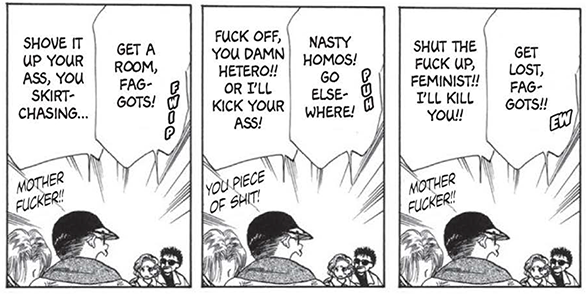
As you can see, the general meaning of the exchange between Kain and a straight couple passing by is similar in all three translations of this panel. But there’s one glaring error –and it’s in the right panel, which is coincidentally, the winning entry by Preston Johnson-Chonkar, the grand prize winner of this year’s contest.
While it’s clear that Kain is cursing out the passerby who is calling Kain and Mel forbeing gay, calling out a straight guy as a “hetero” sounds a little off, calling him a “skirt-chaser” seems odd and dated, but calling him “feminist” is just out and out inaccurate. The way the term “feminist” is generally used in US English is to refer to a someone who supports women’s rights and usually refers to a female person. So this particular use of the word, to insult a man who is annoyed by two gay men having a heated lovers’ argument in the street is... strange.
Then there’s this difference in tone, as Kain and Mel first encounter each other at a bar.
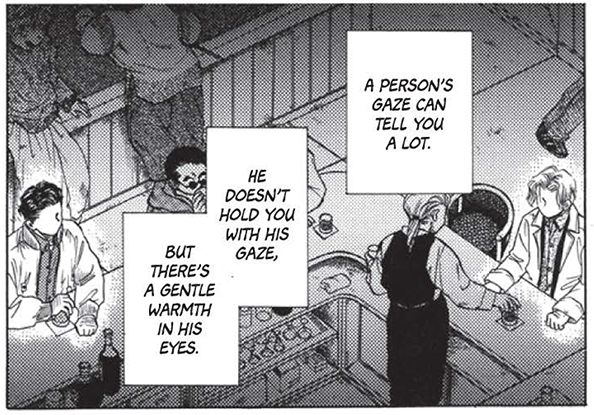
There’s a wistfulness and warmth conveyed in Kain’s description of the moment in the example above that gets squashed by the use of a coarse slang term “eye-fucking” in this example below:
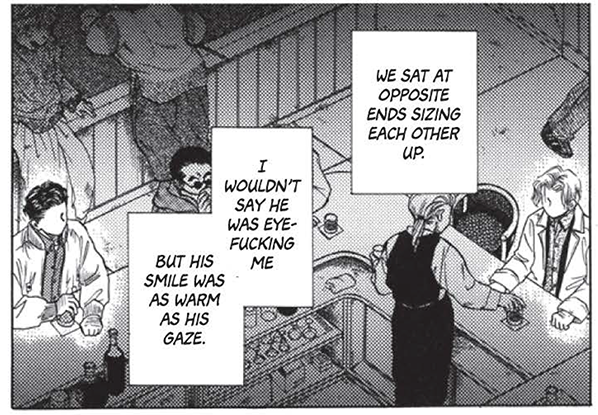
Here's another example, this time as Kain describes a former girlfriend who, uh... had big breasts.
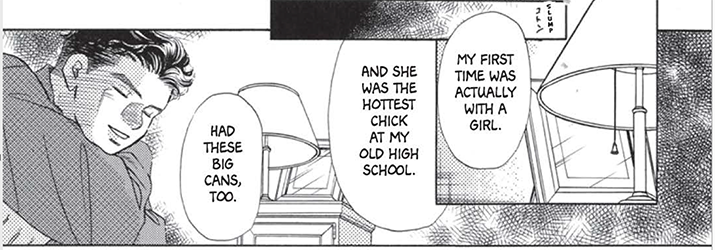
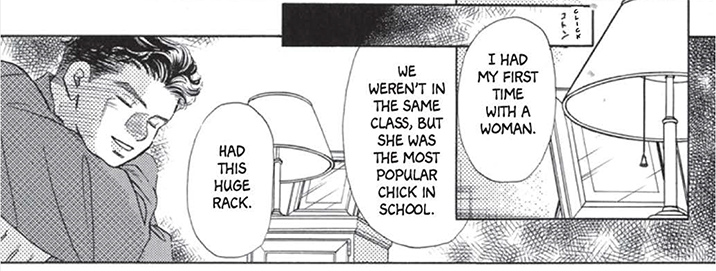
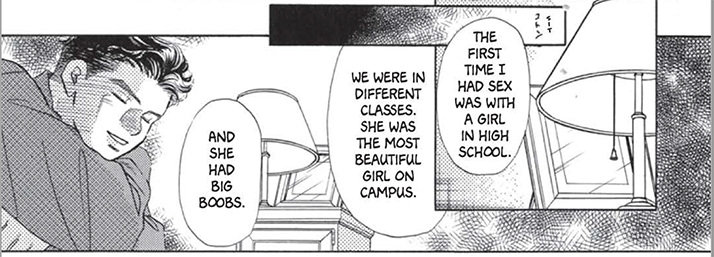
So the choice here is, what sounds more conversational and contemporary? “Big cans?” “Big rack?” Or “big boobs?”Is this former girlfriend “the hottest chick,” “most popular chick in school,” or “the most beautiful girl on campus” ? Is it truer to Kain’s character to have him describe her in a more crude, locker room kind of tone as he’s describing her to Mel, or describe her in a more wistful, respectful way? That’s a judgement call for the translator to make –and hopefully, do it consistently throughout the story, so Kain’s voice and personality is the same throughout, no matter how he expresses himself in different situations and with different people.
Then there’s the challenge of trying to capture the voice, tone, and law enforcement slang of policemen talking to each other. Again, here’s the three finalists’ take on the same panel:
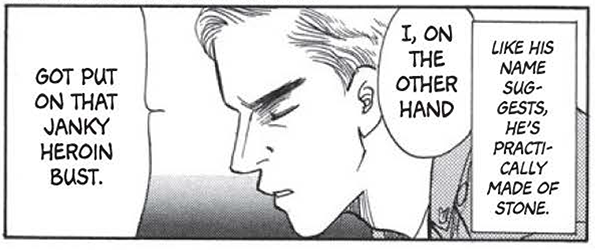
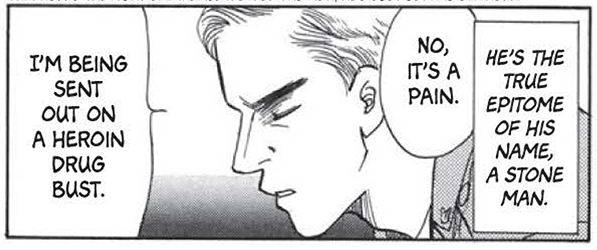
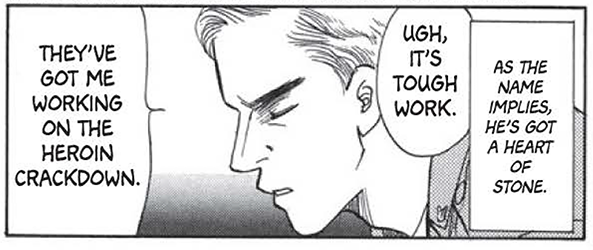
The first finalist took some liberties and had Stoneman refer to his assignment as a ‘janky heroin bust,’ which sounds a little odd and slangy since the character is described as someone who’s stoic and serious, like a “stone man.” The other two interpretations, a “heroin drug bust” and “the heroin crackdown” convey a slightly different impression –“a heroin drug bust” seems to imply a single assignment, while “working on the heroin crackdown” conveys that it’s an ongoing effort. The difference is subtle, but possibly significant, and worth checking against the original Japanese.
As I mentioned on Twitter, none of the finalists in this year’s battle turned in an absolutely flawless entry –but I commend them all for taking up this challenge, and giving it their all to convey the spirit and storytelling of the original manga stories, no matter where and when the stories take place, and whothe characters are, and how their regional, historical, and cultural slang convey a layer of meaning beyond just the literal, dictionary definition of what they say.